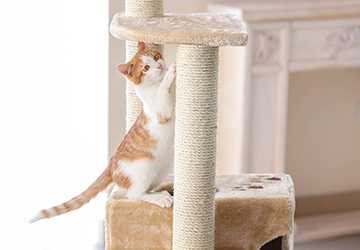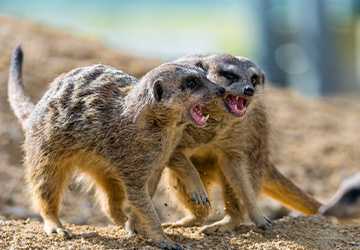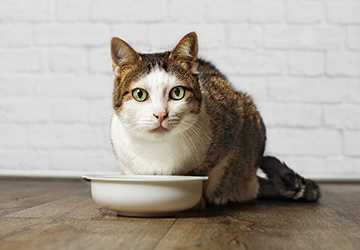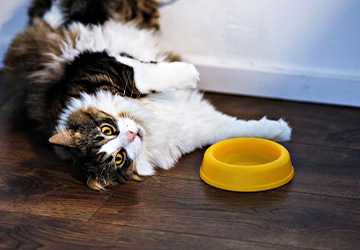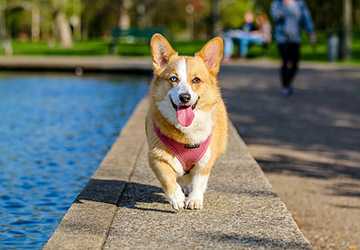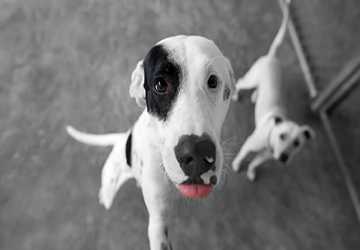How to Plan the Perfect Diet for Herbivorous Pets
Herbivorous pets, such as rabbits, guinea pigs, and tortoises, have unique dietary needs that require careful consideration. Crafting the perfect diet for these animals is essential for their health and well-being and ensuring a long and happy life. This guide will explore the various aspects of planning a balanced diet for herbivorous pets, offering insights and tips to help you make informed choices. From understanding their natural diets to selecting the right foods, portion control, and providing necessary supplements, we've got you covered.
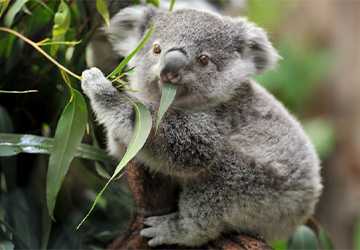
Understanding Herbivorous Pets' Natural Diets
Before diving into the specifics of planning a diet for your herbivorous pets, it's crucial to understand their natural diets. These animals have evolved to thrive on plant-based foods, and their digestive systems specialize in breaking down fibre and extracting nutrients from vegetation. It's important to mimic their natural diets as closely as possible. Rabbits, for instance, are designed to consume a variety of grasses, leafy greens, and the occasional fruit or vegetable in the wild.
Guinea pigs, too, enjoy a diet primarily composed of grasses and hay. On the other hand, tortoises are herbivores that munch on various types of leaves, flowers, and even some succulent plants. These natural diets are characterized by high fibre content and are rich in essential nutrients. Understanding the typical foods herbivorous pets consume in their natural habitat forms the foundation for planning their diet in captivity.
Selecting the Right Foods
When planning a diet for your herbivorous pets, selecting the right foods is the cornerstone. High-quality hay should be the primary source of nutrition. Timothy hay is an excellent choice for rabbits and guinea pigs, as it's fibre-rich and promotes dental health. Orchard grass hay is also a good option. For tortoises, varieties like Bermuda grass hay or alfalfa hay can be included in their diet.
Leafy greens are another essential component of their diet. Kale, romaine lettuce, collard greens, and parsley are great for herbivorous pets. These greens provide crucial vitamins and minerals while contributing to the fibre content of their diet. A small number of pellets can be included in rabbits' daily diet. However, these should be supplementary sources of nutrition rather than the main component of their diet.
Guinea pigs, in contrast, require vitamin C in their diet, so providing guinea pig-specific pellets containing this vital nutrient is essential. Tortoises have a varied diet that includes various leaves, flowers, and some succulent plants. Research the specific dietary requirements of your tortoise species to ensure you provide a well-rounded menu. Fruits and vegetables can also be given to herbivorous pets in moderation. Apples, carrots, and bell peppers are popular choices, but offering them as treats rather than a staple in their diet is essential. Excessive consumption of sugary fruits and starchy vegetables can lead to health problems.
Portion Control
Portion control is a crucial element in maintaining the health of herbivorous pets. Unlike dogs and cats, which can self-regulate their food intake to some extent, herbivores may overeat if given unrestricted access to food. Overeating can lead to obesity and other health issues. It's best to feed your herbivorous pets at designated times and measure their food portions.
For rabbits and guinea pigs, a general guideline is to offer approximately 1/4 to 1/2 cups of fresh vegetables per day and unlimited access to hay. Pellets should be given sparingly, about 1/4 cup per day. Tortoises' portion sizes can vary depending on their species and size, so consult a veterinarian or expert in tortoise care for specific recommendations.
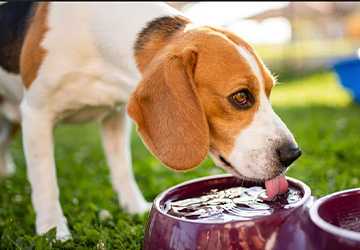
Supplements and Fresh Water
While a well-balanced diet is the foundation of herbivorous pet care, supplements and access to fresh water are equally important. These animals require a source of vitamin C, calcium, and other essential nutrients. For guinea pigs, it's crucial to ensure they receive adequate vitamin C, as they cannot synthesize it themselves. This can be achieved by offering guinea pig-specific pellets or supplementing their diet with vitamin C-rich foods like bell peppers.
Tortoises need a calcium source to maintain their shell and bone health. This can be provided as a calcium block or powder sprinkled over their food. Always ensure your tortoise has access to fresh, clean water for drinking and bathing. For all herbivorous pets, consult a veterinarian or an experienced pet owner to determine if any additional supplements are necessary for your specific pet's needs.
Avoid Harmful Foods
Just as it's essential to know what to include in your herbivorous pet's diet, it's equally important to know what foods to avoid. Some foods can be harmful or even toxic to these animals. For rabbits and guinea pigs, avoid feeding them high-calcium foods like spinach, Swiss chard, and kale in excess, as they may contribute to urinary problems. Avoid feeding them foods high in sugar and starch, such as sweets and bread.
Tortoises should not be given foods high in oxalates or goitrogens, such as spinach, beet greens, and cabbage. These substances can interfere with calcium absorption and thyroid function. Be cautious of seeds and pits when offering fruits to your herbivorous pets, as these can be a choking hazard. Some fruits like grapes and cherries also contain toxic compounds and should be avoided.
Monitoring and Adjusting the Diet
Every pet is unique, and monitoring their health and adjusting their diet is essential. Regularly observe your herbivorous pets for any signs of health issues, such as changes in appetite, weight loss, or unusual behaviours. If you notice any changes in their condition, consult a veterinarian specializing in exotic pets or herbivorous animals. They can guide you in adjusting the diet to meet your pet's specific needs.
Conclusion
Planning the perfect diet for your herbivorous pets is a responsibility that should not be taken lightly. These animals rely on us for the proper nutrition to lead happy and healthy lives. By understanding their natural diets, selecting the right foods, practising portion control, providing necessary supplements, and avoiding harmful foods, you can ensure that your herbivorous pets receive the nutrition they need to thrive.
Remember that every pet is unique, and their dietary needs may vary. Regular monitoring, consultation with a veterinarian, and a deep commitment to their well-being will ensure your herbivorous pets live a life filled with vitality and joy. So, plan their perfect diet with care and love, and you'll be rewarded with the companionship of happy and healthy herbivorous pets.
